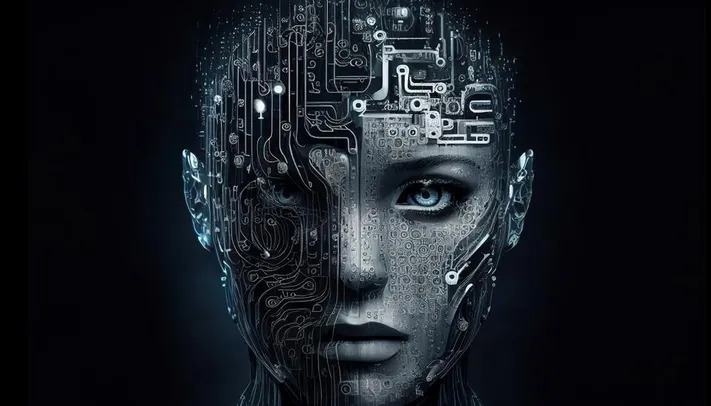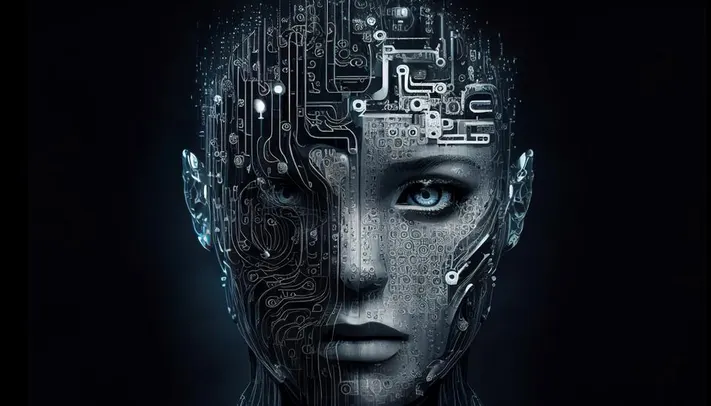Unraveling the Magic of Artificial Intelligence and Machine Learning


Introduction
In the realm of technology and innovation, two phrases have risen to prominence in recent years Artificial Intelligence (AI) and Machine Learning (ML). These groundbreaking fields have not only captured the imaginations of scientists and tech enthusiasts but have also fundamentally reshaped industries, from healthcare to finance.
In this article, we will embark on a journey to demystify AI and ML, exploring what they are, how they work, and the transformative impact they are having on our world.
The Foundations of Artificial Intelligence
Artificial Intelligence is a concept that has been a part of human imagination for centuries, dating back to ancient myths and tales of machines with human-like intelligence.
But what is AI, really At its core, AI refers to the development of computer systems that can perform tasks that typically require human intelligence. These tasks encompass a wide range of activities, from problem-solving and language comprehension to visual perception and decision-making.
There are two primary categories of AI
1. Narrow or Weak AI This type of AI is designed to perform specific tasks or solve particular problems. Siri and Alexa, virtual assistants that can answer questions and perform tasks, are examples of narrow AI.
2. General or Strong AI General AI aims to mimic human intelligence across a broad spectrum of tasks, displaying reasoning, learning, and problem-solving abilities at a human level. Achieving this level of AI remains a significant challenge and has not been realized yet.
Machine Learning The Engine of AI
Machine Learning is the driving force behind many AI applications we encounter daily. It is a subset of AI that focuses on creating systems that can learn and improve from experience. Instead of programming specific instructions.
ML algorithms enable machines to analyze data and learn patterns from it, making predictions or decisions based on that knowledge.
Key components of Machine Learning include
1. Data ML systems rely on vast datasets to learn and make decisions. The quality and quantity of data directly impact the performance of ML models.
2. Algorithms These are the mathematical models that process the data and learn patterns. Popular ML algorithms include decision trees, neural networks, and support vector machines.
3. Training ML models undergo a training process where they learn from historical data. This training involves adjusting model parameters to minimize errors and improve accuracy.
4. Inference After training, ML models can make predictions or decisions when presented with new, unseen data.
Applications of AI and Machine Learning
1. Healthcare AI is revolutionizing healthcare with applications like disease diagnosis, drug discovery, and personalized treatment plans. ML helps analyze medical images, predict disease outbreaks, and even improve the efficiency of healthcare operations.
2. Finance In the financial industry, AI-driven algorithms analyze market trends, detect fraudulent activities, and provide personalized financial advice. High-frequency trading relies on AI to make split-second investment decisions.
3. Autonomous Vehicles Self-driving cars leverage AI and ML to process sensory data from cameras, radar, and lidar, enabling them to navigate and make driving decisions in real time.
4. Natural Language Processing (NLP) AI and ML power chatbots, virtual assistants, and language translation tools, making communication and information retrieval more efficient and accessible.
5. Manufacturing AI-driven robotics and automation enhances production processes, quality control, and supply chain management, optimizing efficiency and reducing costs.
6. Entertainment Recommendation systems on streaming platforms like Netflix and Spotify use AI to suggest content based on user preferences. Additionally, AI-generated content, such as deepfake videos and AI-created art, is gaining traction in the entertainment industry.
Challenges and Ethical Considerations
As AI and ML continue to advance, they raise important ethical and societal questions
1. Bias ML algorithms can inherit biases present in the data they are trained on, leading to unfair outcomes. Ensuring fairness and mitigating bias is a critical challenge.
2. Privacy The vast amounts of data required for AI and ML raise concerns about personal privacy. Striking a balance between data utility and privacy protection is a constant challenge.
3. Job Displacement The automation of certain tasks and industries by AI and robots may lead to job displacement for some workers. Preparing for the changing job landscape is essential.
4. Security AI can be used for both defensive and offensive purposes in cyberattacks. Protecting AI systems from attacks and misuse is a growing concern.
5. Accountability Determining responsibility when AI systems make decisions is a complex issue. Establishing accountability frameworks is necessary to address this challenge.
The Future of AI and ML
The future of AI and ML is poised for even greater innovation and integration into our daily lives. Here are some exciting possibilities on the horizon
1. Healthcare Revolution AI is expected to revolutionize the healthcare of humans and pets, with advancements in precision medicine, drug discovery, and AI-assisted surgery.
2. Climate Change Mitigation AI can contribute to climate change mitigation by optimizing energy consumption, improving weather forecasting, and aiding in the development of sustainable technologies.
3. Enhanced Education AI-powered personalized learning platforms can tailor educational experiences to individual students, improving learning outcomes.
4. Enhanced Natural Language Understanding Advancements in NLP will make interactions with virtual assistants and chatbots even more natural and intuitive.
5. Autonomous Everything Autonomous vehicles, underwater drones, and robotics will become increasingly prevalent, transforming industries and transportation, mobile manufacturing, and iPhone updating like iPhone 15 pro and the next variants.
Conclusion
Artificial Intelligence and Machine Learning have ushered in an era of transformative innovation. They have moved beyond science fiction and have become integral parts of our daily lives.
Understanding the foundations, applications, challenges, and ethical considerations surrounding AI and ML is crucial as we navigate this rapidly evolving technological landscape.
While we stand at the precipice of numerous possibilities, the responsible development and use of AI and ML will ultimately shape our collective future. As we harness these tools for the betterment of society, it’s essential to remain vigilant, ensuring that the magic of AI and ML benefits all of humanity.



